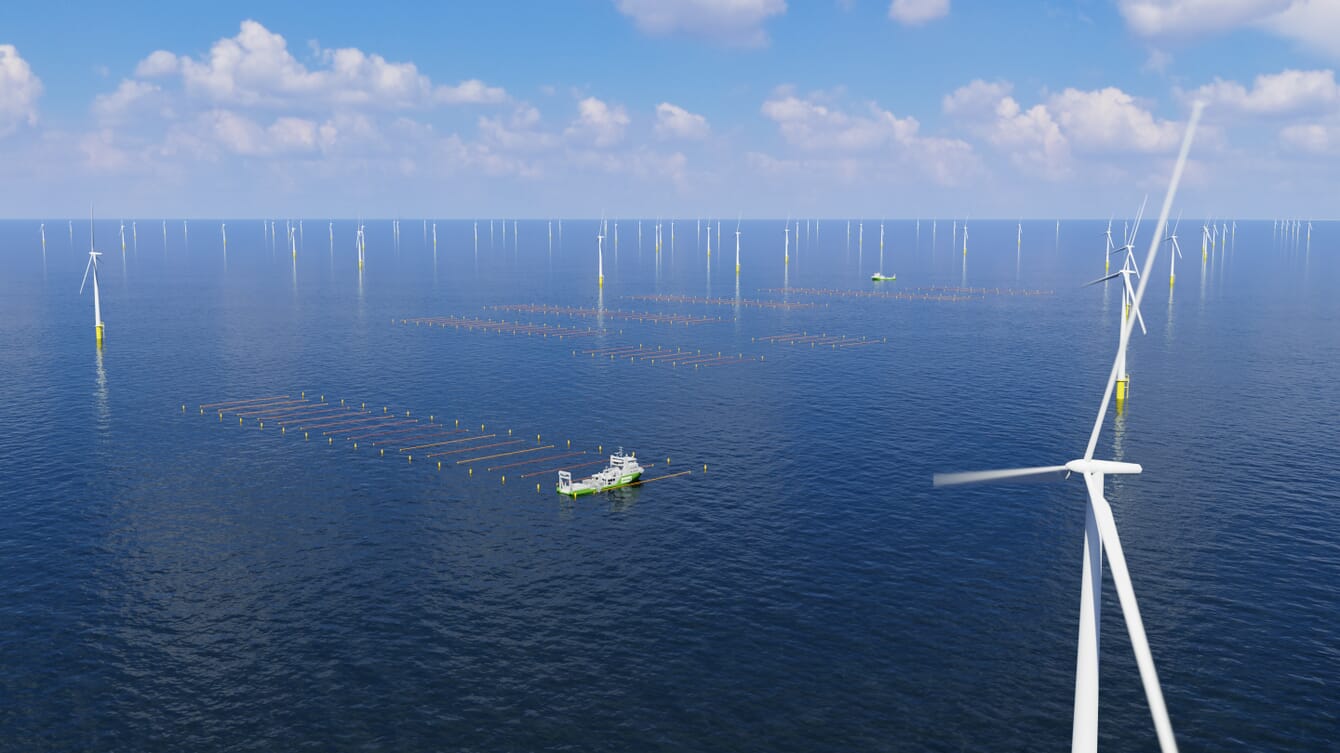
North Sea Farmers (NSF), an international not-for-profit seaweed farming membership organisation, will be growing seaweed in designated areas near the turbines © Smartlands
Seaweed is known to absorb large quantities of CO2
but the extent of its viability for carbon removal at industrial scale is yet to be determined. For “blue carbon” ecosystems such as mangroves, seagrasses or salt marshes, carbon is sequestered into mud or sediment in the immediate environment – as the plants grow and die, their decomposing matter is absorbed into the ground below. Seaweeds, by contrast, grow in rocky and exposed areas, making the carbon sequestration process much more difficult to track, as the seaweed detritus is constantly released into the ocean, sequestering at sites on the seafloor and at unknown locations in the deep ocean.
As part of an innovative €1.5 million project, funded through Amazon’s Right Now Climate Fund, a team of scientists from PML is seeking to establish the role offshore seaweed farming could play in capturing and storing carbon in future. Delivered alongside North Sea Farmers (NSF), an international not-for-profit seaweed farming membership organisation, North Sea Farm 1 is a first-of-its-kind seaweed farm located amongst offshore wind turbines.
It is hoped the project, and the research it generates, will enable a far greater understanding of the natural processes involved in the seaweed carbon cycle and the ability to track detritus and locate where carbon may be stored for the long term, in the deep ocean and seafloor. Ultimately, North Sea Farm 1 could provide a blueprint for how such farms, coupled with seafloor conservation measures, could be used for larger-scale capture carbon in future.
Dr Ana Queirós, senior marine and climate change ecologist at PML, who is leading the research, said in a press release: “I’m very excited about this project and the knowledge gap it seeks to address. The carbon dioxide removal potential of the seaweed industry remains unproven and the challenge is to understand how seaweed can be used for carbon sequestration over the long term. There is a lot of interest in the growth of the industry but we need to have the evidence to determine the genuine blue carbon value of these habitats. PML is at the forefront of science to understand the seaweed carbon cycle and I’m delighted to be working alongside North Sea Farmers, who have one of the most advanced seaweed farming operations in the world.”
Zak Watts, director EU sustainability at Amazon, added: "Seaweed could be a key tool in removing carbon dioxide from the atmosphere, yet it’s currently farmed at a relatively small scale in Europe. We're delighted to fund this project to help us reach a greater understanding of its ability to help fight climate change.”


